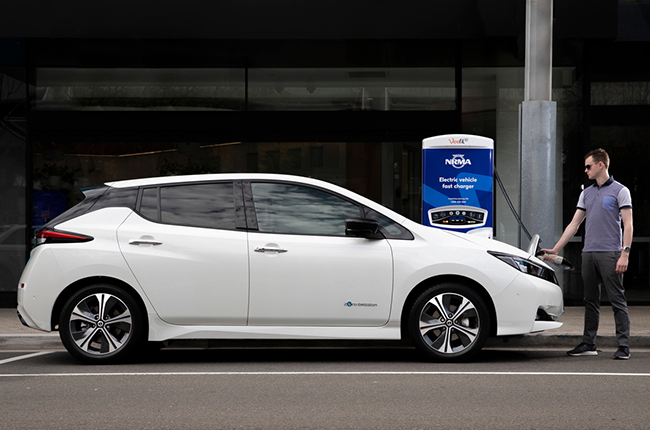
When it comes to vision, Nissan has tons of it. The Japanese automaker is planning to make an ecosystem for electric vehicles (EV), with a plan designed to utilize electric batteries’ ability to store and share energy; for example, powering a home or a business.
However, it isn’t as simple as that. In fact, the plan is so wide-scoped that describing it as an ‘ecosystem’ sounds just about right. Nissan is trying to make its EVs universally connected by devising its own energy systems for battery charging, energy sharing, and feeding energy back to grids. Not only that, the Japanese carmaker, is also looking forward to reusing electric car batteries. All that was mentioned are part of the Nissan Energy plan.

The plan is already in the works with programs in the US, Japan, and Europe of creating an ecosystem around its product range of EVs, such as the LEAF – all under the umbrella of Nissan Intelligent Mobility strategy.
“Nissan Energy will enable our customers to use their electric cars for much more than just driving – now they can be used in nearly every aspect of the customer’s lives. Our Nissan Intelligent Mobility vision calls for changing how cars are integrated with society, and Nissan Energy turns that vision into reality.”
There are three key initiatives in the Nissan Energy plan, which are mainly focused on energy supply, sharing, and storage. Nissan believes these three will set new standards for connecting vehicles to energy systems. Under the Energy Supply initiative, Nissan aims to provide connected charging solutions to customers at home, on the road, and even to their end destination. The initiative will assist Nissan owners by verifying whether the wall boxes or electrical sockets can be safely connected to their Nissan vehicle.
The Energy Share initiative, on the other hand, aims to transform Nissan EVs as mobile energy storage devices that could connect with society’s infrastructure and share its energy to power homes and business buildings. This could also enable the car to act as virtual power plants by sharing its power to local energy grids for efficient energy management. Meanwhile, the Energy Storage initiative is designed to extend or add a ‘second life’ to the EV’s battery.
With all that’s stated, we could be off to a future where owning a Nissan EV is one of the most practical ways to go. If you’re quite as interested as we are, all we could do is wait and stay tuned on the development of this project, and its arrival to the Philippine market.
Latest News
-
Hyundai confirms the IONIQ 6 N Launch — Should we expect it in PH? / News
The IONIQ 6 N is coming this July, and Hyundai seems to be leaving its old spoiler behind. With the all-new rear design, the performance sedan could look sleeker than before.
-
Hyundai brings back free roadside help this holy week / News
Hyundai Motor Philippines will once again offer roadside help to travelers during Holy Week. This year marks the third time the program is being done, with select dealers ready to assist on...
-
Ford Philippines is offering a three-year free scheduled service package on their best-selling vehicles this month. / News
Thinking of owning a Ford? Ford Philippines now offers a free three-year Scheduled Service Plan (SSP) on select models.
Popular Articles
-
Cheapest cars under P700,000 in the Philippines
Jerome Tresvalles · Sep 02, 2024
-
First car or next car, the Ford EcoSport is a tough package to beat
Jun 18, 2021
-
Car Maintenance checklist and guide – here’s everything you need to know
Earl Lee · Jan 12, 2021
-
Most fuel efficient family cars in the Philippines
Bryan Aaron Rivera · Nov 27, 2020
-
2021 Geely Okavango — Everything you need to know
Joey Deriquito · Nov 19, 2020
-
Family cars in the Philippines with the biggest trunks
Sep 20, 2023
-
Head to head: Toyota Rush vs. Suzuki XL7
Joey Deriquito · Oct 28, 2020
-
Why oil changes are important for your car
Earl Lee · Nov 10, 2020
-
2021 Kia Stonic — What you need to know about it
Joey Deriquito · Oct 16, 2020
-
Top 7 tips for buying a used car in the Philippines
Joey Deriquito · Nov 26, 2020



